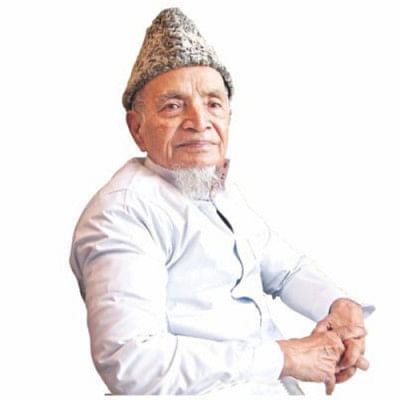Remembering ‘Banglar Rumi’

On this day, exactly eight years ago, Syed Ahmadul Huq—a very well respected public servant, noted scholar, Sufi practitioner and philanthropist—bade us farewell leaving behind a rich legacy of his scholarly research and interpretative works of Sufi masters, including those of renowned poet and mystic Allama Jalaluddin Rumi. For his scholarship on Rumi, he was popularly called "Banglar Rumi". Syed Ahmadul Huq was a towering scholar on Sufism and the timeless creations of Sufi masters.
He authored many masterly works and wrote sixteen books, along with a number of research papers on a whole range of subjects. But his main focus was on Sufism and the Sufis. He was a great admirer of the great Sufis of the medieval world with special reference to Maulana Jalaluddin Rumi, whose work Mathnavi is considered as a religious text next to the Holy Quran and the Hadith in the Muslim world. Two Volumes of Syed Ahmadul Huq Rochonaboly (Works of Syed Ahmadul Huq) on Sufism, published in 2017 by Allama Rumi Society Bangladesh have made significant contributions to the history of world Sufism in Bengali language, where he has given adequate space to Jalaluddin Rumi and his philosophy. He firmly believed that the philosophy of Rumi can save humanity and human beings from destruction.
Though Enamul Huq, Abdur Rahim, Abdul Karim, Barkatullah, JN Sarkar, Tapan Raychaudhury, Hossainur Rahman, Osman Ghani and some other scholars wrote books and articles on Sufism in Bangla; yet their contribution mainly highlights the history of Sufism in the contexts of India and Bangladesh. Ahmadul Huq has written on the life and philosophy of the world Sufis in Bengali language only to introduce these great Sufis to the Bangalee readers. He propagated that the mystic teachings of the Sufis can change the life of the people in a positive way.
Syed Ahmadul Huq founded the Allama Rumi Society and believed like Arnold Toynbee that the modern man needs a religion, and so he tried to preach the essence of religion through Sufi Philosophy. He had a dream to establish a society wedded to the ideas of liberal philosophy, peace, harmony and non-communalism where there would be no discrimination between human beings in the name of caste, creed and religion; his dream came true with the foundation of Rumi Society in 1992 during his lifetime. Following the teachings of the Prophet of Islam, he also tried to liberate and unite humankind, emphasising the need for education in man. In essence, humanising man was the sole mission of his life.
He was deeply opposed to communalism. In critiquing, he often quoted in his works extensively from western liberal literature including from the works of Shakespeare. In his work tracing the origin of human beings, he quoted passages from Wordsworth on devotional love for God. He also used to cite often from the English poet John Milton on issues of faith and spiritual communion with God. He also liberally quoted from medieval and modern Bengali poetry in support of his belief in the primacy of universal humanitarian messages.
All the Sufis, especially Maulana Jalaluddin Rumi inspired Syed Ahmadul Huq to lead a life of piety and in service to humanity. The Holy Quran, the Hadith and Sufi literature provided for the main guiding principle for his penchant and love for the Divine One.
Md Shah Noorur Rahman is an Associate Professor at North-Eastern Hill University, Shillong, India.

 For all latest news, follow The Daily Star's Google News channel.
For all latest news, follow The Daily Star's Google News channel. 



Comments